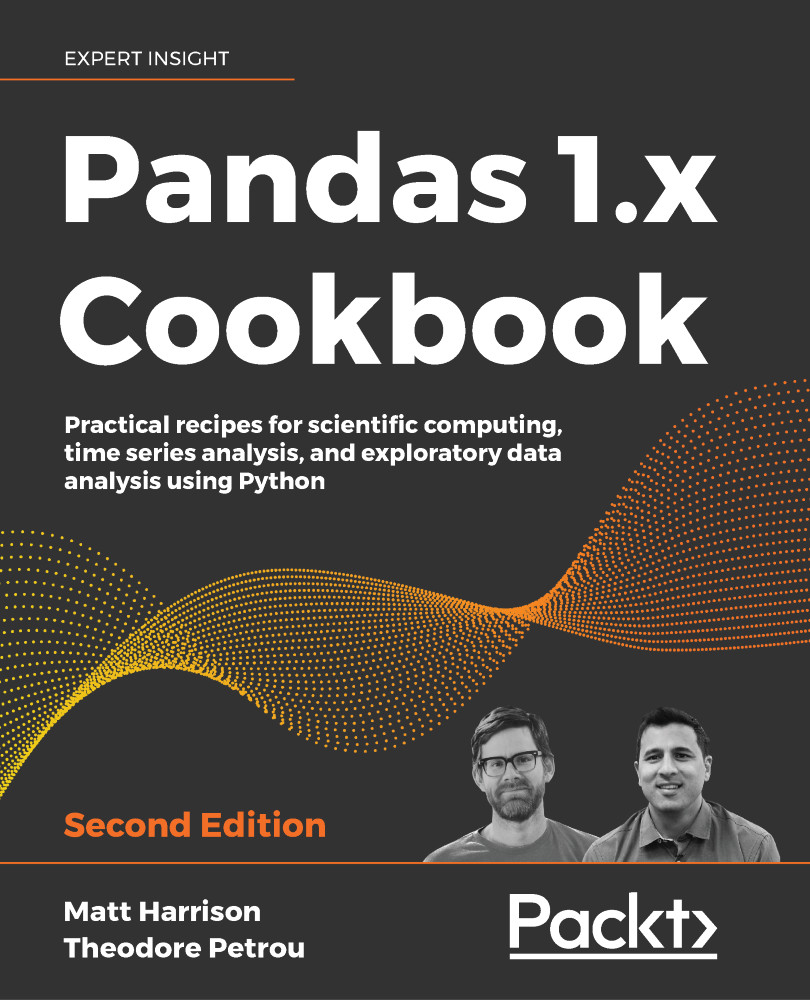-
Book Overview & Buying

-
Table Of Contents

Pandas 1.x Cookbook - Second Edition
By :

Pandas 1.x Cookbook
By:
Overview of this book
The pandas library is massive, and it's common for frequent users to be unaware of many of its more impressive features. The official pandas documentation, while thorough, does not contain many useful examples of how to piece together multiple commands as one would do during an actual analysis. This book guides you, as if you were looking over the shoulder of an expert, through situations that you are highly likely to encounter.
This new updated and revised edition provides you with unique, idiomatic, and fun recipes for both fundamental and advanced data manipulation tasks with pandas. Some recipes focus on achieving a deeper understanding of basic principles, or comparing and contrasting two similar operations. Other recipes will dive deep into a particular dataset, uncovering new and unexpected insights along the way. Many advanced recipes combine several different features across the pandas library to generate results.
Table of Contents (17 chapters)
Preface
Pandas Foundations
 Free Chapter
Free Chapter
Essential DataFrame Operations
Creating and Persisting DataFrames
Beginning Data Analysis
Exploratory Data Analysis
Selecting Subsets of Data
Filtering Rows
Index Alignment
Grouping for Aggregation, Filtration, and Transformation
Restructuring Data into a Tidy Form
Combining Pandas Objects
Time Series Analysis
Visualization with Matplotlib, Pandas, and Seaborn
Debugging and Testing Pandas
Other Books You May Enjoy
Index
